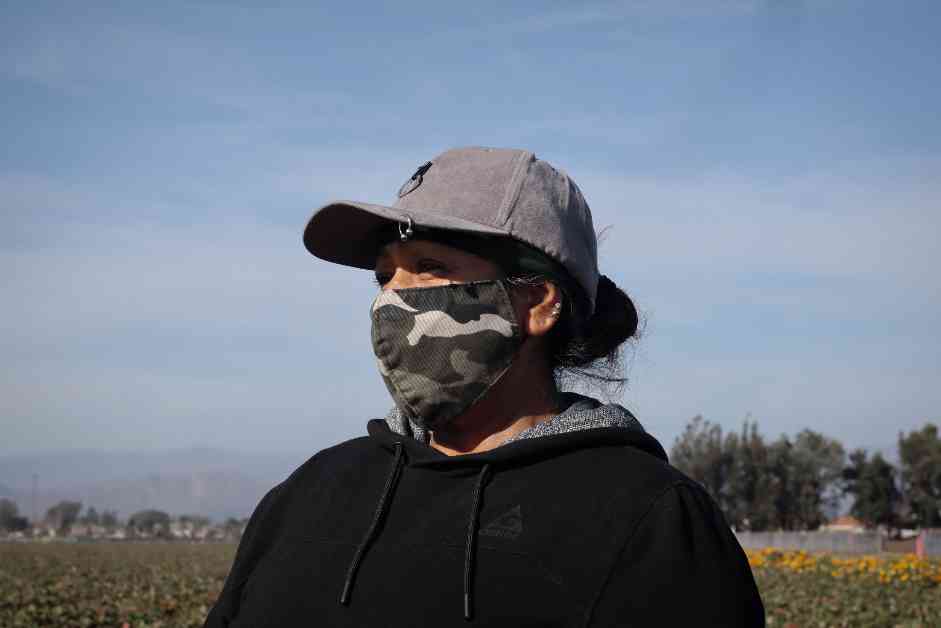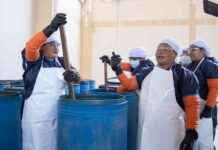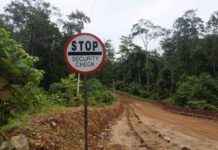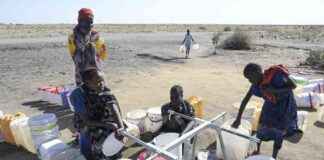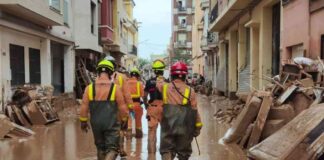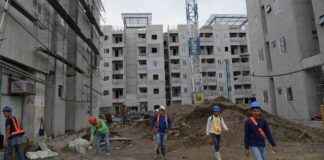The Wildfire Woes of Farmworkers in California
In Oxnard, California, the aftermath of the devastating January wildfires in Pacific Palisades lingered in the air, turning the sky a hazy orange hue. Amid the chaos, Adriana, a farmworker whose name remains anonymous for safety reasons, braved the smoke to reach a strawberry field. Despite coughing up blood from the harsh smoke, the single mother needed the money to pay rent. “I get a cough out of nowhere,” she explained in Spanish. “It’s triggered by anything. By the cold, by the smoke. And I’ve been coughing so hard that blood comes out of my throat.”
Unfortunately, Adriana was turned away by firefighters blocking the highway, losing a day’s pay in the process. She is just one of many farmworkers in California, including those who have migrated from Mexico and other countries in search of a better life. The work is fraught with risks of accidents and illnesses, with Adriana experiencing serious falls and feeling her lungs weaken each year, especially during wildfire season. Despite the dangers, she continues to show up for work, ready to gather strawberries for the new season.
The Impact of Wildfire Smoke on Farmworkers
California implemented regulations five years ago to protect outdoor workers from harmful air pollution caused by wildfires. However, recent research from the University of California, Davis suggests that the current safety standards may not be sufficient. Agricultural economists Timothy Beatty and Goeun Lee found that as smoke thickens in the fields, the likelihood of traumatic injuries such as strains, tears, and lacerations increases. Even at levels considered safe under California’s standards, injuries still occur due to wildfire smoke exposure.
The study estimates that at least 282 farmworkers suffered wildfire smoke-related injuries in 2020 alone, with numbers expected to rise as climate change escalates the risk of extreme fire events. While the frequency of wildfires may not significantly increase, the likelihood of large-scale fires, known as megafires, is projected to grow substantially. These megafires burn longer, spread farther, and expose more people to hazardous smoke conditions. Beatty and Lee’s research highlights the hidden toll of wildfire smoke on farmworkers, with non-traumatic injuries often going unreported, reflecting the limitations of available data.
Challenges and Solutions for Farmworkers
Farmworkers like Adriana face numerous challenges, including inadequate protection from wildfire smoke, lack of access to proper equipment like N95 masks, and limited flexibility in work hours. California’s regulations around air pollution thresholds, overtime pay, and worker protections are under scrutiny, with calls for stricter standards and additional safeguards to mitigate the impact of wildfires on farmworkers. However, implementing these changes may take years, leaving farmworkers vulnerable to the ongoing risks posed by wildfire smoke exposure.
In the face of these challenges, advocacy groups like the United Farm Workers Foundation are working to support farmworkers and push for stronger protections. The plight of farmworkers in California underscores the urgent need for comprehensive measures to safeguard their health and well-being in the face of increasing wildfire risks. As the state grapples with the impacts of climate change, addressing the vulnerabilities of farmworkers is essential to ensure a safer and more sustainable agricultural industry.
So, yeah, the struggle is real for these farmworkers, and it’s clear that more needs to be done to protect them from the dangers of wildfire smoke exposure. The current regulations may not be cutting it, and the risks are only getting worse with climate change. Let’s hope that policymakers and employers step up to prioritize the health and safety of those who work tirelessly to put food on our tables.
Donations from readers like you fund every aspect of what we do. If you don’t already, will you support our ongoing work, our reporting on the biggest crisis facing our planet, and help us reach even more readers in more places? Thank you for your support.

